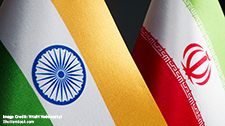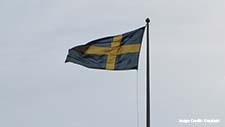A “Double Fault” in Swedish Aid?
Swedish development cooperation has moved away from an explicit focus on poverty reduction with its partner countries to other priorities, namely democracy and human rights, gender equality, and the environment. Not only this but once countries make the transition from a low-income to middle-income country status, Sweden downscales cooperation when precisely such is needed to help establish sustainable and inclusive growth policies. This policy brief argues that the effectiveness of Swedish aid is hampered by this “double fault” which should be
redressed.
Related Publications
-
The US and EU, and the Emerging Supply Chain Network: Politics, Prospects, and Allies
The Global Supply Chains have evolved from simply logistical achievements to being the bedrock of the global economy. Driven by technological advances and geopolitical shifts, this transformation underscores the critical […]
-
Navigating the Indo-Pacific: How Australia and the EU Can Partner for Peace, Stability, and Prosperity
To navigate the choppy waters of the Indo-Pacific, the EU and Australia must be on the same wavelength regarding shared interests in rules, values, and an open and liberal economic […]
-
Hegemony at a Crossroads: The Inverse Dynamics of China’s Global Strategy
Here is my bold statement. Hard power projection decimates soft power but only for authoritarian states. In the early 21st century, I was living in Beijing and at that time […]
-
India’s Position in Iran’s ‘Look to the East’ policy
Ebrahim Raisi’s administration has prioritized its ‘Look to the East’ policy. Although the focus is on Russia and China, India also has a special place in this policy. Iran and […]
-
The Kingdom of Sweden: A Long History of Sustainable Practices
Sweden has been one of the pioneering countries in the field of sustainability, green transition, and environmental conservation. Notably, in 1964 and 1967, Sweden passed the Nature Conservancy Act and […]




